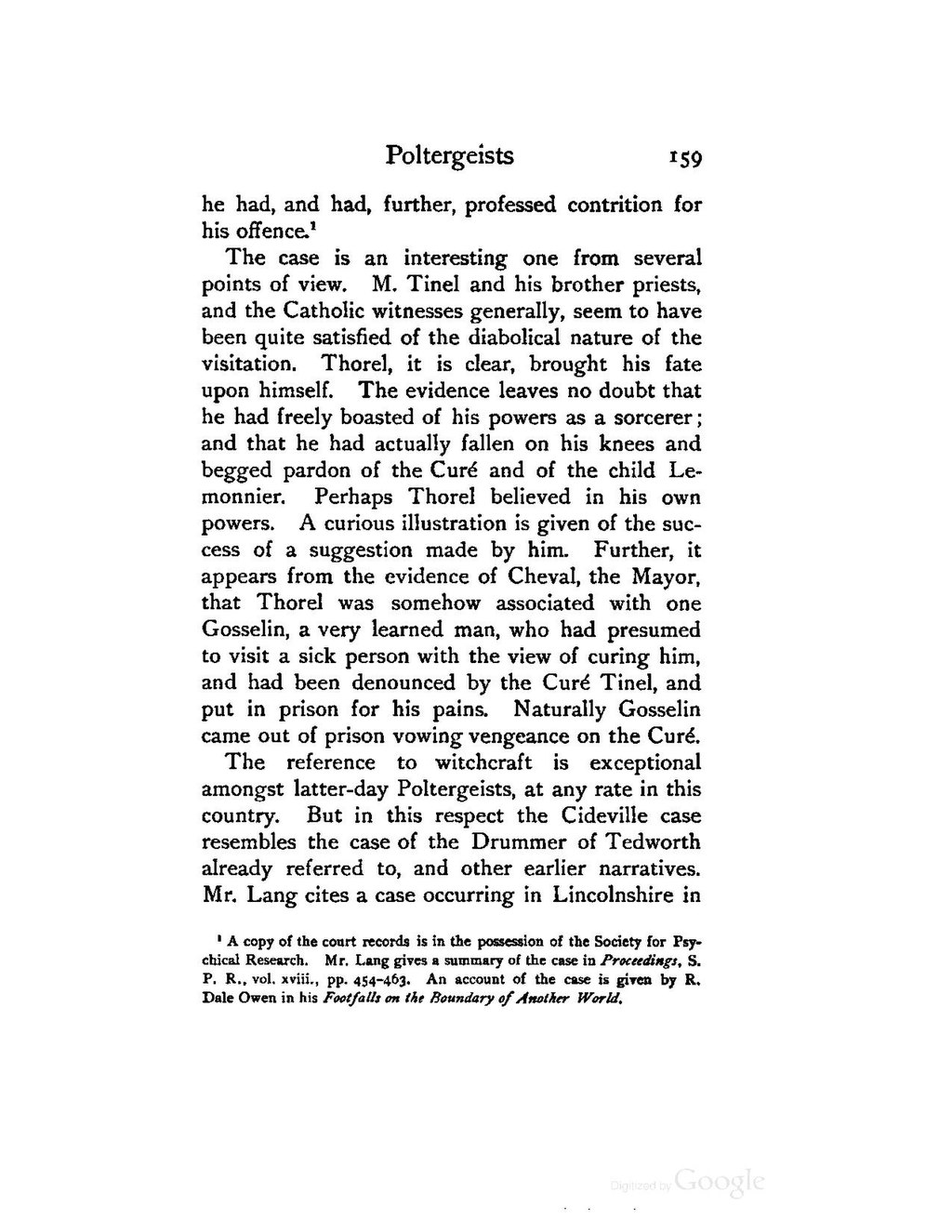he had, and had, further, professed contrition for his offence.[1]
The case is an interesting one from several points of view. M. Tinel and his brother priests, and the Catholic witnesses generally, seem to have been quite satisfied of the diabolical nature of the visitation. Thorel, it is clear, brought his fate upon himself. The evidence leaves no doubt that he had freely boasted of his powers as a sorcerer; and that he had actually fallen on his knees and begged pardon of the Curé and of the child Lemonnier. Perhaps Thorel believed in his own powers. A curious illustration is given of the success of a suggestion made by him. Further, it appears from the evidence of Cheval, the Mayor, that Thorel was somehow associated with one Gosselin, a very learned man, who had presumed to visit a sick person with the view of curing him, and had been denounced by the Curé Tinel, and put in prison for his pains. Naturally Gosselin came out of prison vowing vengeance on the Curé.
The reference to witchcraft is exceptional amongst latter-day Poltergeists, at any rate in this country. But in this respect the Cideville case resembles the case of the Drummer of Tedworth already referred to, and other earlier narratives. Mr. Lang cites a case occurring in Lincolnshire in
- ↑ A copy of the court records is in the possession of the Society for Psychical Research. Mr. Lang gives a summary of the case in Proceedings, S. P. R., vol. xviii., pp. 454–463. An account of the case is given by R. Dale Owen in his Footfalls on the Boundary Another World.
